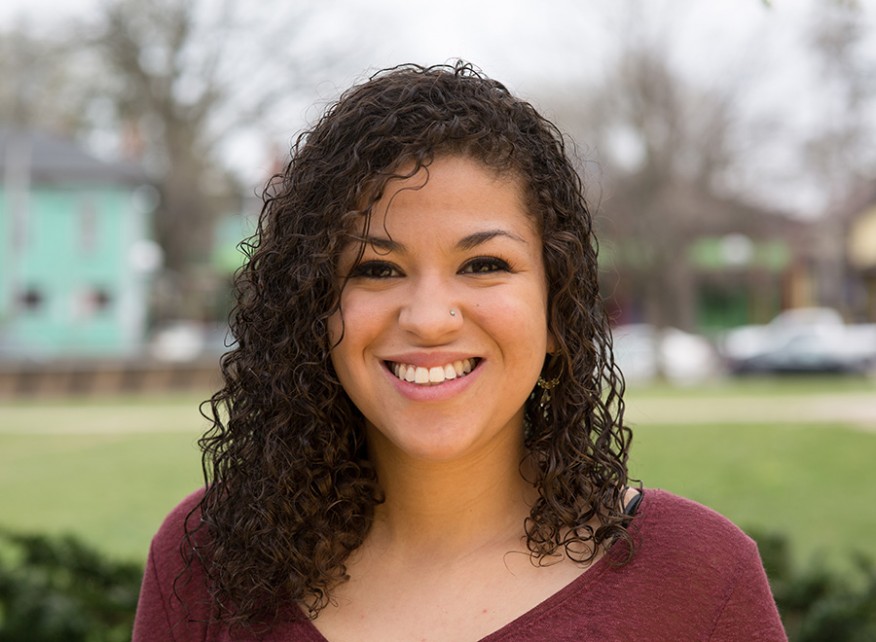“Childbirth is the most joyous experience in a woman’s life, but it can also be one of the most terrifying. I love hearing their stories and feel so honored to be a part of their process.”
Madinah Luqmaan is talking about her field placement at UMHS, where she works with expectant and new mothers and their infants who participate in the Maternal Infant Health Program (MIHP). It’s a prenatal and infant hospital- and home-visit program offered to all Medicaid-eligible women by the Michigan Department of Health and Human Services that aims to decrease infant mortality rates.
Luqmaan sees three to five clients a day in the UMHS OB/GYN department where she conducts intake appointments, risk assessments, care planning, and interventions based in motivational interviewing techniques.
“The conversations I have with these women cover deeply personal details - everything that you wouldn’t want to tell someone else about, like sexual history, pregnancies, elective abortions, and drug and alcohol use. I have to build rapport with them from the beginning. I focus on being completely present with them, empathizing and validating their feelings and experiences. When they realize I’m not there to judge but to support, they are more open to making decisions that are healthy for themselves and their baby.”
Luqmaan is an Interpersonal Practice and Health major and the 2015 recipient of the Vivian A and James Curtis Endowed Scholarship Fund for Hospital-based Social Work. She was also awarded an Integrated Health Scholarship. After graduation, Luqmaan wants to continue her study of the mother-infant dyad, focusing on women's transitions into motherhood, bonding and attachment, particularly among women of color.
“I think it’s important to pay attention to race because racial disparities and social inequalities lead to higher infant mortality rates. Understanding patients’ racial/ethnic background, spirituality, sexual orientation, and income level has an impact on their care and birth outcomes. If health care providers can bring understanding to their work and provide unconditional support, I think we can bring an end to infant mortality. Social workers can be the leaders in this.”
Luqmaan was chosen for the Integrated Health Scholarship program and is the 2015 recipient of the Vivian A and James Curtis Endowed Scholarship Fund for Hospital-based Social Work. “The financial support I receive makes it possible for me to focus on my work,” says Madinah, who came to Ann Arbor from South Bend, Indiana. “I work on building relationships with expectant mothers, so they are more open to making decisions that are healthy for themselves and their babies.”
